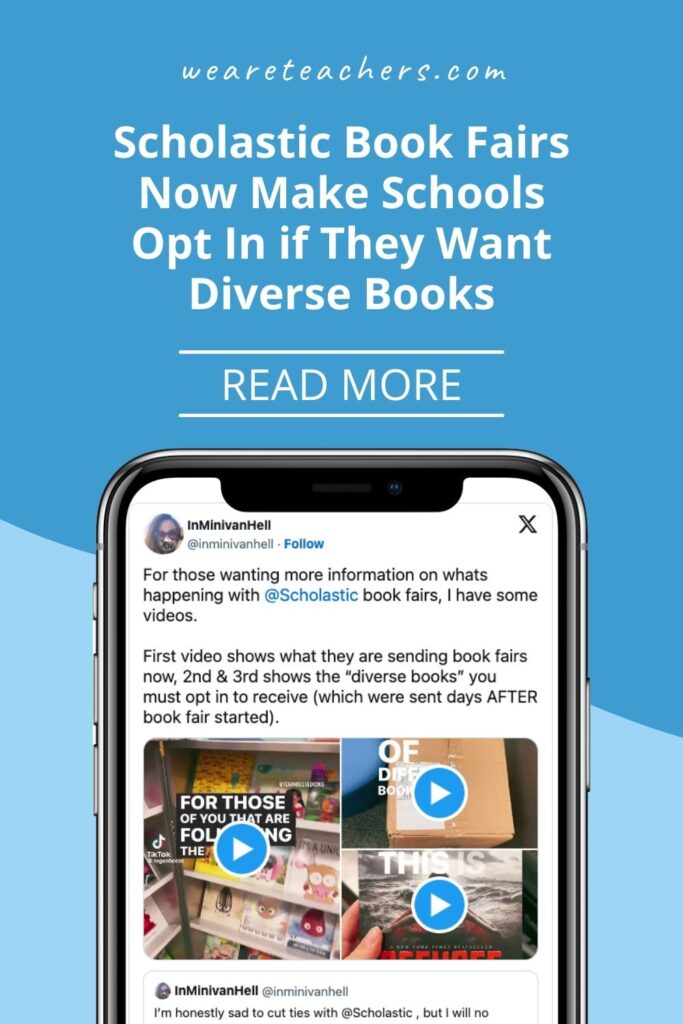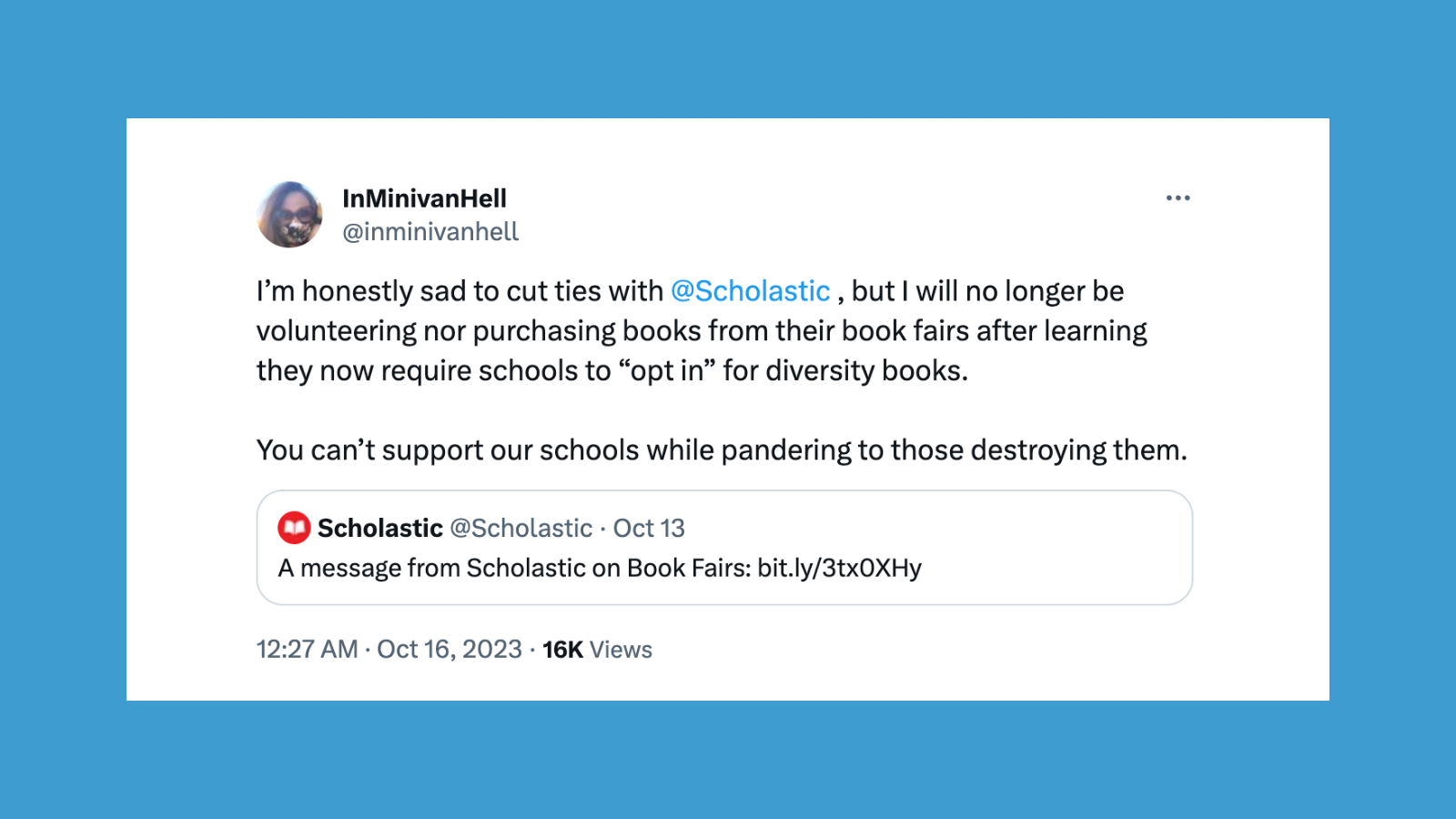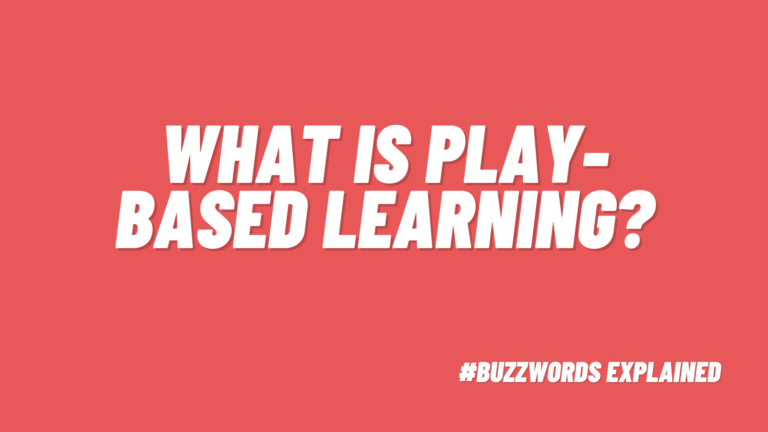So many current and former students have nostalgic memories of Scholastic Book Fairs. But over the past few days, Scholastic has been getting some heat from librarians and education advocates. The culprit? A controversial change to the ordering process for this year’s Scholastic Book Fairs, particularly as it relates to diverse books.
When school librarians went to order books for this year’s elementary Scholastic Book Fairs, they discovered they had a new choice to make. What was once a part of the default order is now a separate, optional collection of diverse books called Share Every Story, Celebrate Every Voice. The stories in the collection—which touch on the existence of LGBTQIA+ people and racism in America, immigration stories, and other topics wrestled over in culture wars—would not be included in their book fair unless librarians clicked to opt in. The implications were obvious. What kind of stories would be left for students if librarians didn’t check that box?
Librarians went to X (formerly Twitter) to voice their concerns.
What librarians and authors are saying
Critics of Scholastic’s decision include librarians, parents, and education advocates. Many argue it’s a political move to dodge heat from far-right groups behind mass book bans in the past few years.
Others focus on how this affects students. They argue that not opting in to this collection results in a narrow selection of books that limit crucial exposure and/or representation for readers.
Many authors are speaking out and helping librarians and PTAs gather alternative options for future book fairs.
Scholastic’s response
On Friday, Scholastic released this statement regarding the diverse books offered at their book fairs:
Scholastic provides diverse titles to every Book Fair.
There have been a number of misconceptions that we want to clarify about how we have created a path to host Scholastic Book Fairs, even as schools and educators in the U.S. navigate restrictions imposed on them by state legislation and local policy. The biggest misconception is that Scholastic Book Fairs is putting all diverse titles into one optional case. This is not true, in any school, in any location we serve.
There is now enacted or pending legislation in more than 30 U.S. states prohibiting certain kinds of books from being in schools – mostly LGBTQIA+ titles and books that engage with the presence of racism in our country. Because Scholastic Book Fairs are invited into schools, where books can be purchased by kids on their own, these laws create an almost impossible dilemma: back away from these titles or risk making teachers, librarians, and volunteers vulnerable to being fired, sued, or prosecuted.
To continue offering these books, as well as even more high interest titles, we created an additional collection called Share Every Story, Celebrate Every Voice for our U.S. elementary school fairs. We cannot make a decision for our school partners around what risks they are willing to take, based on the state and local laws that apply to their district, so these topics and this collection have been part of many planning calls that happen in advance of shipping a fair.
We don’t pretend this solution is perfect – but the other option would be to not offer these books at all – which is not something we’d consider. There is a wide range of diverse titles throughout every book fair, for every age level. And, we continue to offer diverse books throughout our middle school fairs, which remain unchanged.
All children need to see themselves in stories and it is extremely unsettling to consider a world in which they don’t. Scholastic’s commitment remains unshakeable to publish and distribute stories representative of ALL voices.
After Scholastic posted their Tweet linking to this statement, most commenters responded that they found the statement lacking:
However, another conversation emerged. This commenter pointed to the example of Cobb County teacher Katie Rinderle. Rinderle’s district fired her for reading a book from their Scholastic book fair.
Takeaways
Librarians don’t want to be in this position. But I don’t think Scholastic wants this, either—especially if school employees are losing their jobs because of them.
Part of me wonders: Are we forgetting the real enemy here?
I’m thinking of my first principal, who was by definition a tyrant. She led by fear, using rumors and retaliation to sow division among teachers. Instead of working together to take her out of leadership, teachers argued internally. And while we did that, she quietly rose in power until she was in one of the district’s top leadership roles.
I want to be clear that I wholeheartedly support holding businesses to account when we believe they compromise their values. But I wonder if instead of this being a case of Scholastic vs. librarians, we forget that we are actually on the same side; that the true oppressor is the small but loud group of people who are convinced that the most dangerous thing in a child’s hands is a book.
For more articles like this, be sure to subscribe to our newsletters.


